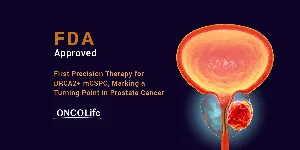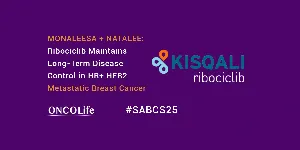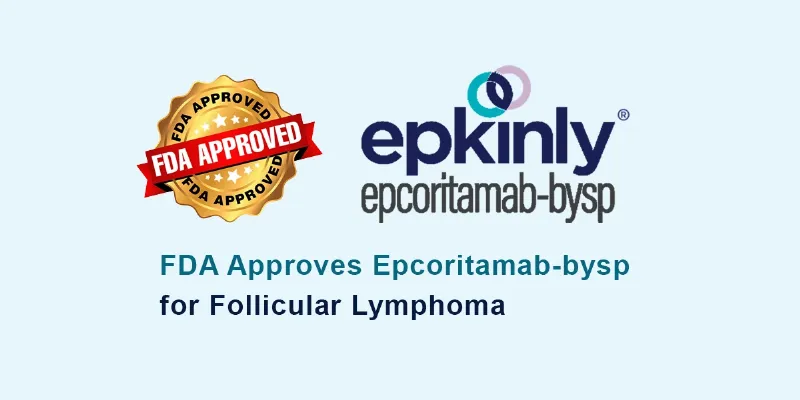KEYTRUDA Receives Priority FDA Review for Perioperative Use in ES Head and Neck Cancer

KEYTRUDA® (pembrolizumab) plus standard care for resectable locally advanced head and neck squamous cell carcinoma receives FDA priority review based on KEYNOTE-689 results. The trial showed improved event-free survival and major pathological response, with consistent safety. If approved, this perioperative immunotherapy could transform outcomes for a hard-to-treat cancer.
Merck announced that the U.S. Food and Drug Administration (FDA) has accepted, for priority review, a new supplemental Biologics License Application (sBLA) seeking approval for KEYTRUDA® (pembrolizumab), an anti-PD-1 therapy, for patients with resectable locally advanced head and neck squamous cell carcinoma (LA-HNSCC). The proposal includes neoadjuvant treatment, then adjuvant treatment in combination with standard-of-care radiotherapy (with or without cisplatin), followed by single-agent therapy. A regulatory decision is expected by June 2025.
A Breakthrough in a Long-Stagnant Standard of Care
LA-HNSCC has historically been managed with a combination of surgery followed by adjuvant radiotherapy, with or without cisplatin. This therapeutic approach has not seen notable advances for more than two decades, underscoring the pressing need for novel strategies that could improve outcomes and reduce recurrence. Merck’s new sBLA application is built upon data from the Phase 3 KEYNOTE-689 clinical trial, which marks the first time an anti-PD-1 therapy has demonstrated a statistically significant and clinically meaningful improvement in event-free survival (EFS) in earlier-stage head and neck cancer when used in the neoadjuvant and adjuvant settings.
“Based on the compelling results of the KEYNOTE-689 trial, we hope to reduce the risk of recurrence and disease progression in earlier stages of disease,” said Dr. Marjorie Green, SVP and Head of Oncology, Global Clinical Development at Merck Research Laboratories. “We look forward to working with the FDA to potentially bring KEYTRUDA to these patients as soon as possible.”
Key Findings from KEYNOTE-689
Study Design: KEYNOTE-689 (NCT03765918) is a randomized, active-controlled, open-label Phase 3 trial assessing KEYTRUDA in patients with newly diagnosed, resectable stage III or IVA LA-HNSCC who have not received prior treatment. Approximately 704 patients were randomized 1:1 to receive:
- Neoadjuvant KEYTRUDA (200 mg intravenously [IV] every three weeks for two cycles) prior to surgery, followed by KEYTRUDA plus standard of care radiotherapy (with or without cisplatin) for 15 additional cycles post-surgery.
- No neoadjuvant therapy prior to surgery, followed by standard of care radiotherapy (with or without cisplatin) after surgery.
EFS and mPR Improvements
A pre-specified first interim analysis reported a statistically significant advantage in EFS in the KEYTRUDA arm compared to adjuvant radiotherapy alone. Major pathological response (mPR), an important secondary endpoint that gauges treatment effectiveness before full completion of therapy, was also markedly higher in the KEYTRUDA group.
Safety Profile
Safety results align with previously documented findings on KEYTRUDA. No new safety signals emerged, suggesting the therapy is generally well-tolerated and consistent with known side effect profiles of anti-PD-1 therapies.
Context and Future Outlook
Head and neck cancers are commonly squamous cell carcinomas arising from the mucosal surfaces of the head and neck region. It is estimated that globally in 2022, over 891,500 new cases were diagnosed, leading to 458,100 deaths.
Should the FDA grant approval based on the KEYNOTE-689 data, clinicians could soon have a new, immunotherapy-based perioperative option—KEYTRUDA—that may enhance outcomes in a patient population historically constrained by limited treatment innovations.
Beyond head and neck carcinoma, KEYTRUDA has been widely studied across more than 1,600 clinical trials in various malignancies. It functions by binding to the PD-1 receptor on T lymphocytes, thereby inhibiting the interaction with its ligands PD-L1 and PD-L2. This immune-modulating mechanism has demonstrated benefits in an expanding list of tumor types, cementing KEYTRUDA’s role as a cornerstone of contemporary immuno-oncology.











Comments
No Comments Yet!